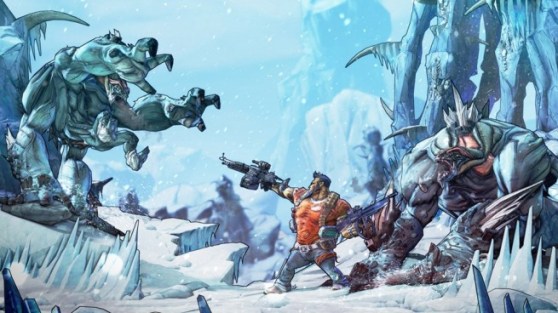GamesBeat: So, I’ve actually wanted to speak to you for a long time, for a very specific reason. I’ve been in games press for several years, and one of the biggest trends I’ve seen is that, when you pull back the curtain, a lot of the magic seems to have been sucked out of game development.
You encounter a ton of people who are just really stressed out because of mismanagement, or because the people above them are not always in it for the same reasons that the creative types are. The glimmer in their eyes is gone. They’ve become those little potato people from The Dark Crystal.
So you’re one of the extremely rare people I’ve ever picked up on where you have this constant enthusiasm for making games.
Pitchford: Well, thank you. I don’t know why I’m wired that way. Sometimes I notice that some of the people I interact with can swing a lot. I don’t swing at all. Some people have these incredible highs. If you could measure how happy someone is on a scale of one to 10, sometimes they’re really depressed and down around two or three or something. But when they swing high they go up to 11 or 12. I spend my whole life at around eight or nine. [Laughs] I don’t really have much deviation. It’s strange. Maybe I’m flawed in some way, but whatever. Thank you. I’ll take the flattery. Which I think is what you meant by that.
GamesBeat: Definitely. So going off of what I said, what do you think are some of the things in your experience that can lead to those twos and threes?
Pitchford: That’s so interesting. You’ve decided to ask the person you’ve pre-identified as someone who always tends to be high about what makes someone low. [Laughs] I’m probably the least qualified person to answer that.
GamesBeat: But at the same time, you have seen it, right?
Pitchford: Yeah, I have. We’re all wired a little bit differently, but I know that chemically, in our brains, a lot of what affects how we feel is related to chemical processes. How much our brain is producing dopamine or serotonin and other related chemicals. It’s a thrilling enterprise, what we do. This blend between the subjective of entertainment … we’re in the business of emotion in many respects. It’s very amorphous. It’s a non-science. It’s an art.
But on the other hand, there’s the technology, which is all science. You have this interesting blend of subjectivity and the very rigid rule set involved in the way we interact with these machines. It’s a very unique combination. It’s very, very difficult to navigate. The puzzle is exciting. It’s very thrilling to crack those nuts, and there’s a million of them in any given video game development. When we crack those nuts, we feel a thrill. Then there’s this moment where we’re going to launch something and there’s a huge number of things to do, an absurd volume of just Things To Do that have to be managed and tracked. While we’re going through this process, our brains tend to adapt to what we need from them. We’re producing more endorphins. We’re producing more serotonin. We’re becoming addicted to our own brain chemicals.
The most obvious time is when we ship, or when we reach a major milestone, or when we finish a big push. Arbitrarily, the pressure changes, and all of those chemicals stop. We very literally go through withdrawal. It changes our chemistry. Some of us are very susceptible to that. I think it’s fundamentally a chemical thing. For some reason – I don’t know why – but I don’t work in the same way. I tend to have even doses throughout. Sometimes I’m kind of disappointed, because I look at the people who have wide swings and I see how high they can get. I go, “Man, that guy is just stoked right now. I don’t know if I’ll ever get that high.” But I also don’t have the lows. I have learned that when we understand that this is our brains playing with us, we can affect it.
I’ve known some incredibly smart engineers and programmers that have absurd ability to reason. Very rational people. But they’re still human beings and they’re still affected by the same chemicals. They’ll go into depression after a big milestone. Just the knowledge, the education about the brain is working, helps them defeat that. “Yeah, I’m depressed right now, but that’s chemical withdrawal. I’m gonna ignore it and do what I need to do.” That’s a hyper-rational mind at work.
Perhaps, and this is just me hypothesizing… I know that oftentimes in game development, particularly in triple-A game development, we go through these spurts and these phases. Often, PR rounds are scheduled in line with the completion of major processes and sequences and these iterative bursts. You might be frequently seeing people that are involved in the process at the points where they’re most likely to be going through those withdrawals, because some major effort has been finished and the new effort hasn’t yet been contemplated. The new iterations that are built on whatever that last phase was haven’t yet been put upon all the minds that are involved in the process. That’s just a hypothesis, but it’s interesting. You might be in a better spot to test that than I would.

